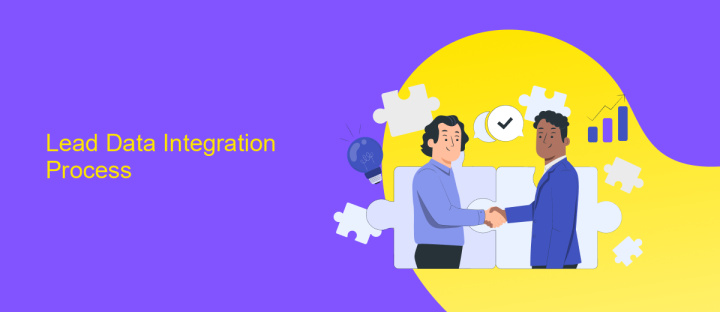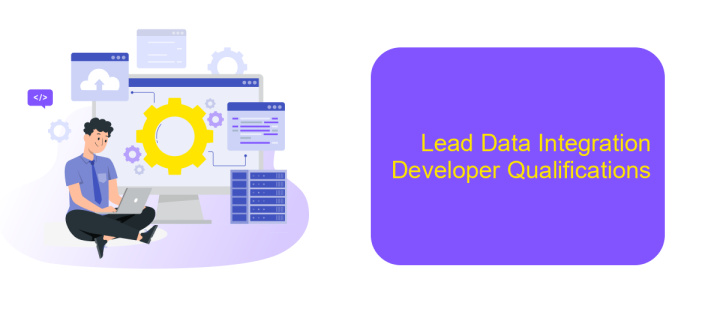Lead Data Integration Developer Job
In the rapidly evolving field of data management, the role of a Lead Data Integration Developer has become indispensable. This position requires a unique blend of technical expertise and leadership skills to seamlessly integrate disparate data sources. As businesses increasingly rely on data-driven decisions, the demand for skilled professionals in this domain continues to grow, making it a highly sought-after career path.
Introduction
The role of a Lead Data Integration Developer is critical in today's data-driven landscape. As businesses increasingly rely on data to make informed decisions, the need for seamless integration of data from various sources has become paramount. This position not only requires technical expertise but also strong leadership skills to guide a team of developers in creating robust data integration solutions.
- Design and implement data integration solutions
- Lead and mentor a team of developers
- Ensure data accuracy and consistency
- Collaborate with cross-functional teams
- Stay updated with the latest technologies and best practices
In addition to technical skills, a successful Lead Data Integration Developer must possess excellent problem-solving abilities and a keen eye for detail. Effective communication and project management skills are also essential, as the role often involves coordinating with various stakeholders to ensure that data integration projects are completed on time and meet business objectives. This position offers a unique opportunity to make a significant impact on an organization's data strategy and overall success.
Lead Data Integration Process

The Lead Data Integration process is a critical aspect of ensuring seamless data flow across various systems and platforms. It involves designing, developing, and maintaining robust data integration solutions that align with business objectives. The lead developer must assess existing data infrastructure, identify integration requirements, and implement scalable solutions that enhance data accuracy and accessibility. This includes data extraction, transformation, and loading (ETL) processes, as well as real-time data synchronization to support business intelligence and analytics efforts.
One essential tool in this process is ApiX-Drive, a versatile service that simplifies the setup of data integrations. ApiX-Drive allows for the automation of data transfer between numerous applications, reducing manual intervention and minimizing errors. By leveraging ApiX-Drive, the lead developer can streamline data workflows, ensuring that data from various sources is consistently and accurately integrated. This enables organizations to make informed decisions based on comprehensive and up-to-date data, ultimately driving operational efficiency and strategic growth.
Lead Data Integration Developer Responsibilities

The Lead Data Integration Developer plays a crucial role in managing and overseeing the integration of data across various platforms and systems. This position requires a blend of technical expertise, strategic thinking, and leadership skills to ensure seamless data flow and integrity. The ideal candidate will have a strong background in data architecture, ETL processes, and team management.
- Design, develop, and implement data integration solutions to support business needs.
- Lead a team of developers, providing guidance, mentorship, and performance evaluations.
- Collaborate with stakeholders to gather requirements and define data integration strategies.
- Ensure data quality and integrity through robust testing and validation processes.
- Monitor and optimize data integration workflows for efficiency and scalability.
- Stay updated with emerging technologies and best practices in data integration.
- Develop and maintain comprehensive documentation for data integration processes and systems.
By taking on these responsibilities, the Lead Data Integration Developer ensures that data is accurately and efficiently integrated, enabling informed decision-making and driving business success. This role is essential for maintaining the integrity and accessibility of critical data assets within the organization.
Lead Data Integration Developer Qualifications

The ideal candidate for the Lead Data Integration Developer role must possess a strong foundation in data integration technologies and methodologies. A deep understanding of ETL processes, data warehousing, and data modeling is essential. The candidate should be adept at leading a team and managing multiple projects simultaneously, ensuring timely and quality delivery.
Experience with cloud platforms such as AWS, Azure, or Google Cloud is highly desirable. The candidate should also be proficient in programming languages like SQL, Python, or Java. Excellent problem-solving skills and the ability to communicate complex technical concepts to non-technical stakeholders are crucial for this role.
- Bachelor’s degree in Computer Science, Information Technology, or related field.
- 5+ years of experience in data integration and ETL development.
- Proven leadership experience in managing technical teams.
- Strong knowledge of data warehousing concepts and tools.
- Experience with cloud data integration platforms.
- Excellent communication and interpersonal skills.
The successful candidate will be a strategic thinker with a passion for data and technology. They will play a pivotal role in shaping the data integration landscape of the organization, driving innovation, and ensuring that data processes are optimized for efficiency and effectiveness.


Conclusion
In conclusion, the role of a Lead Data Integration Developer is pivotal in ensuring seamless data flow across various systems and platforms. This position demands a deep understanding of data integration techniques, robust problem-solving skills, and the ability to lead and mentor a team. Utilizing advanced tools and services such as ApiX-Drive can significantly enhance the efficiency and reliability of integration processes, ensuring that data is accurately and timely synchronized across all business applications.
As businesses continue to expand and integrate more complex systems, the expertise of a Lead Data Integration Developer becomes increasingly valuable. By leveraging innovative solutions and maintaining a proactive approach to emerging technologies, professionals in this role can drive significant improvements in operational efficiency and data management. Ultimately, their contributions are essential for maintaining the integrity and accessibility of critical business data in an ever-evolving digital landscape.
FAQ
What qualifications are required for a Lead Data Integration Developer role?
What are the primary responsibilities of a Lead Data Integration Developer?
How does a Lead Data Integration Developer ensure data quality?
What tools and technologies are commonly used by Lead Data Integration Developers?
How do Lead Data Integration Developers handle data security and compliance?
Time is the most valuable resource in today's business realities. By eliminating the routine from work processes, you will get more opportunities to implement the most daring plans and ideas. Choose – you can continue to waste time, money and nerves on inefficient solutions, or you can use ApiX-Drive, automating work processes and achieving results with minimal investment of money, effort and human resources.

